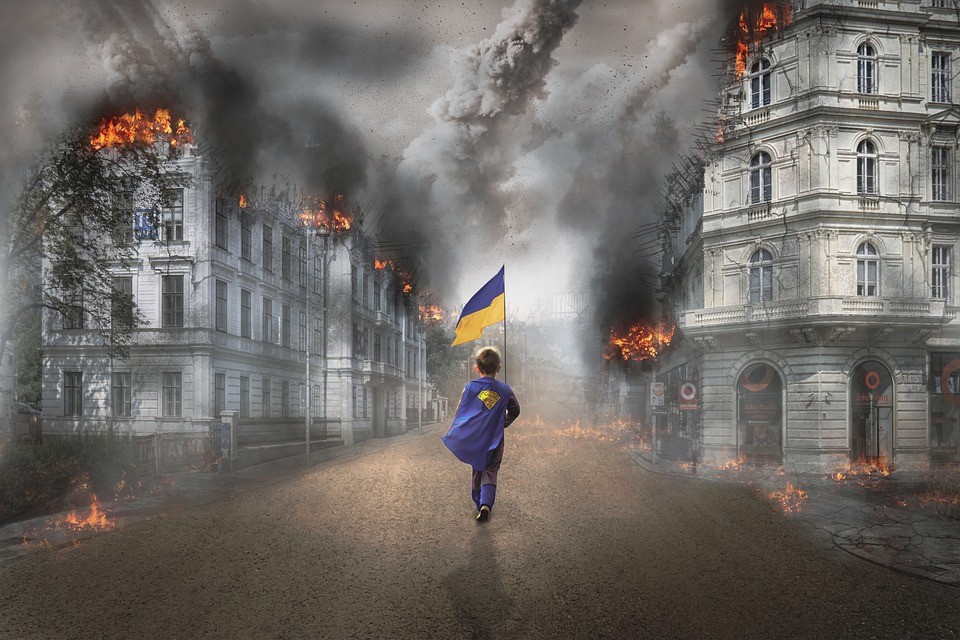Xi Jinping and the CCP leadership are watching events unfold in Russia’s war in Ukraine. As the days pass into weeks, Beijing is growing more concerned that spillover effects from the war could eventually impact China’s domestic economy and its political standing in the world. Over the last decade relations between Putin and Xi have evolved into a close strategic partnership based on mutual convenience. With the world uniting in condemnation of Putin, and sanctions against Russia mounting, Xi is starting to back pedal in China’s public support of Russia by intermittently distancing his country from its companion.
There are other signs, however, that behind-the-scenes Beijing is continuing to strongly back Putin’s efforts. China, like Russia, employs a sophisticated propaganda and disinformation bureaucracy that currently is tasked with helping to shape China’s global image and limit fallout from its partnership with Russia. The world is seeing and hearing the message China intends, while Xi continues his strategic partnership relatively unimpeded with Putin. Xi is a world-class strategist who knows that maintaining a position Western leaders find reasonable is key to not getting dragged into a whirlpool of economic sanctions from which China might not readily escape.
At last week’s China-European Union virtual summit, European leaders pressed China hard to remain neutral and stop actively assisting China. They warned the communist giant against continuing to sustain normal economic relations with Russia while the world is attempting to target and isolate it to force an end to the war. While most of the West is united in its stance, a few European Summit participants still, however, suggested that China could play a mediating role. It is evidence of the effectiveness of the Chinese propaganda machine.
Chinese Premier Li Keqiang told EU leaders that his country would seek to advance peace in “its own way.” Previously, at the end of March in a press conference, Foreign Minister Wang Yi stated that Russia is China’s “most important close neighbor and strategic partner.” When he met with Russian Foreign Minister Sergei Lavrov, Wang Yi hailed efforts to advance bilateral cooperation to “higher levels.” China also inked a deal to buy Russian wheat that it no longer can sell elsewhere due to economic sanctions. Zhang Jun, China’s envoy to the United Nations, told the Security Council on Tuesday that all parties should exercise restraint and then followed up by calling for the world to avoid “groundless” accusations. He then added that “Reports and images of civilian deaths in Bucha are very disturbing, and the circumstances and specific causes of the incident must be ascertained.” Foreign policy analysts in Washington this week are pointing out that China is playing a destabilizing role in its relationship with Europe rather than a mediating one.
Despite pressure from the West, China has not condemned Russian atrocities in Ukraine or called for Putin to be held accountable for war crimes. China has a hidden agenda. Zhang argued at the UN that countries not directly involved in the war should not be held accountable or forces to bear the consequences of geopolitical conflicts. The China-EU summit was a success from Beijing’s perspective as it ended without a commitment from the Chinese leadership to withhold military and economic support from Moscow. The EU’s top diplomat Josep Borrell told the European Parliament on Tuesday that “The Chinese side stuck to their general statements of wishing to see peace, we are a peaceful people, we don’t invade others, asking for de-escalation, but avoiding specific commitments or avoiding any sort of line on Russia.” It is over 40 years since China opened to the West. During that time China’s envoys have gained diplomatic skills and learned to manipulate the global media and world leaders. Beijing continues to pose a fundamental challenge to democratic states, despite China’s propaganda machine moderating its public position.
Larry Diamond and Glenn Tiffert, co-chairs of the Hoover Institution’s project on China’s Global Sharp Power, this week reminded the world that “China’s leaders have a grandiose vision of ‘national rejuvenation.’ The CCP’s ultimate goal is global hegemony – to make China the world’s leading power, dominating not only global trade (and, someday, finance) and resource flows but contested spaces like the Arctic, outer space, and international institutions.” That requires secret diplomatic moves, generating propaganda, and back-room deals with Putin. Western democratic leaders must come to terms with how China operates in the real world and learn to recognize that Xi and the CCP are playing the long-game. China still finds Russia useful for supplying energy, AI technology, and missiles. Xi and the CCP leadership will say and do what is necessary to obtain the advanced technologies needed for its hegemonic goals. Even China would admit that there are two side to every coin. Right now that means avoiding economic sanctions and global condemnation that could deprive the communist regime of the short-term resources it needs to meet its long-term goals.
Daria Novak served in the U.S. State Department
Illustration: Pixabay
